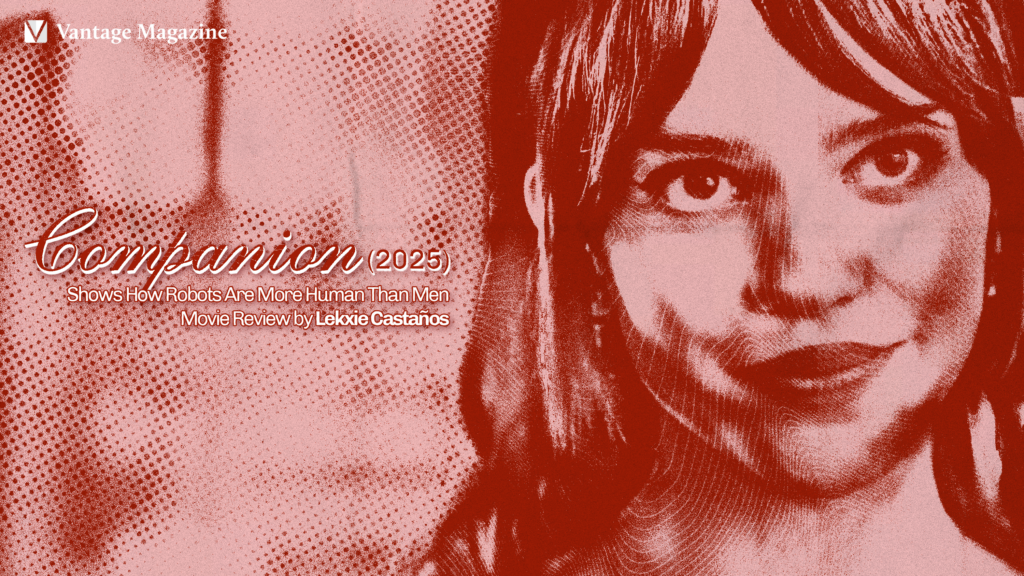The critically acclaimed, Sundance Selection film of 2017, Call Me by Your Name premiered in the Philippines last January 31. Directed by Luca Guadagnino, the film is based on the eponymous novel by author André Aciman.
Set in picturesque, 1980s Northern Italy, the movie features the summer romance that develops between Elio Perlman (Timothée Chalamet) and Oliver (Armie Hammer) over the course of six weeks. The build up towards this is gradual—subtle at first then slowly coming into fruition in the form of a sensual and emotionally gripping relationship that viewers cannot help but be enamored with.
Initially, the two only display the warmth expected between host and guest. Slowly, however, their actions toward each other escalate: From brief contact with one another in passing, to sensual physical contact, and, finally, culmination in sexual intimacy. Despite their respective rejection of each other’s initial advances, both eventually succumb to their desires for one another.
Hammer and Chalamet are delightful to watch on-screen, their connection delivering instant heat when sex is involved, but also warming the hearts as their raw attraction buds into real romance. Their pairing perfectly matches the story, paced well by Guadagnino. The powerful and impressive performance of Chalamet helps drive across the paradoxical qualities of Elio as both precocious and innocent. It is undeniable that the wisdom of Elio is beyond his age—his ease in reading countless books and his ability to transcribe his own music to the point that he can create his own twists on them are proof of this.
However, his innocence lies in his true age—as shown in his inexperience when it comes to relationships. As Oliver, this is where Hammer is able to showcase his experience in being an actor. He embraces the role of the more learned, mature half of the relationship. Ever so reliable and seemingly infallible, he serves as the anchor within the relationship, especially in moments where Elio is overwhelmed by his feelings for him.
The two are also accompanied by different aspects of the film that enhance the experience beautifully. The scenery of a lull Italian summer, where time passes slowly, complements the fervent feelings displayed on screen. Not only did this encapsulate the essence of their summer fling, but it also constructed the perfect backdrop for the timeless love that they had that ended too soon—constrained by time, yet eternalized by summer.
The cinematography also captured the essence of each scene; every frame from this film captured passion, youth, and love, and showcased them splendidly. Equally laudable is the evident attention to detail with regard to contrasting the two seasons of the movie: summer and winter. Summer, the height of Elio and Oliver’s relationship, featured colors reminiscent of one’s own experience of summertime and conveyed a warm, dreamlike feeling. Being the season of Oliver’s absence, winter was ostensibly dull and grey, using either muted or neutral colors to relay an overall feeling of melancholy.
Meanwhile, the editing of the film made sure the audience knew that each and every action between Elio and Oliver would lead up to something bigger. The supporting characters also had their own moments to shine, particularly an impassioned Michael Stuhlbarg who delivered an emotional ending soliloquy as Elio’s father and provided the perfect closer to the whole film.
The soundtrack, headlined by Sufjan Stevens’ “Mystery of Love” and “Visions of Gideon,” grasped the scenes’ essence and heightened the emotions. The folksy music went from playfully plucking at heartstrings as their relationship grew, and emanating sorrow and jealousy when it was necessary.
Despite all the different elements involved in the film, what makes Call Me by Your Name truly spectacular are the subtleties that tie them all together. The gestures and looks, the witty banter and unassuming interactions—these all build up and dissect the romance between Elio and Oliver. The chemistry goes beyond script, with gazes adding meanings to lines that would have not been there had Chalamet and Hammer not given in to their characters, or if Guadagnino had not captured the picture so vividly. The raw sexuality mingles with intricate sensuality, taking place in moments that frame Elio and Oliver as purveyors of true romance.
Featured photo retrieved from Indiewire.






